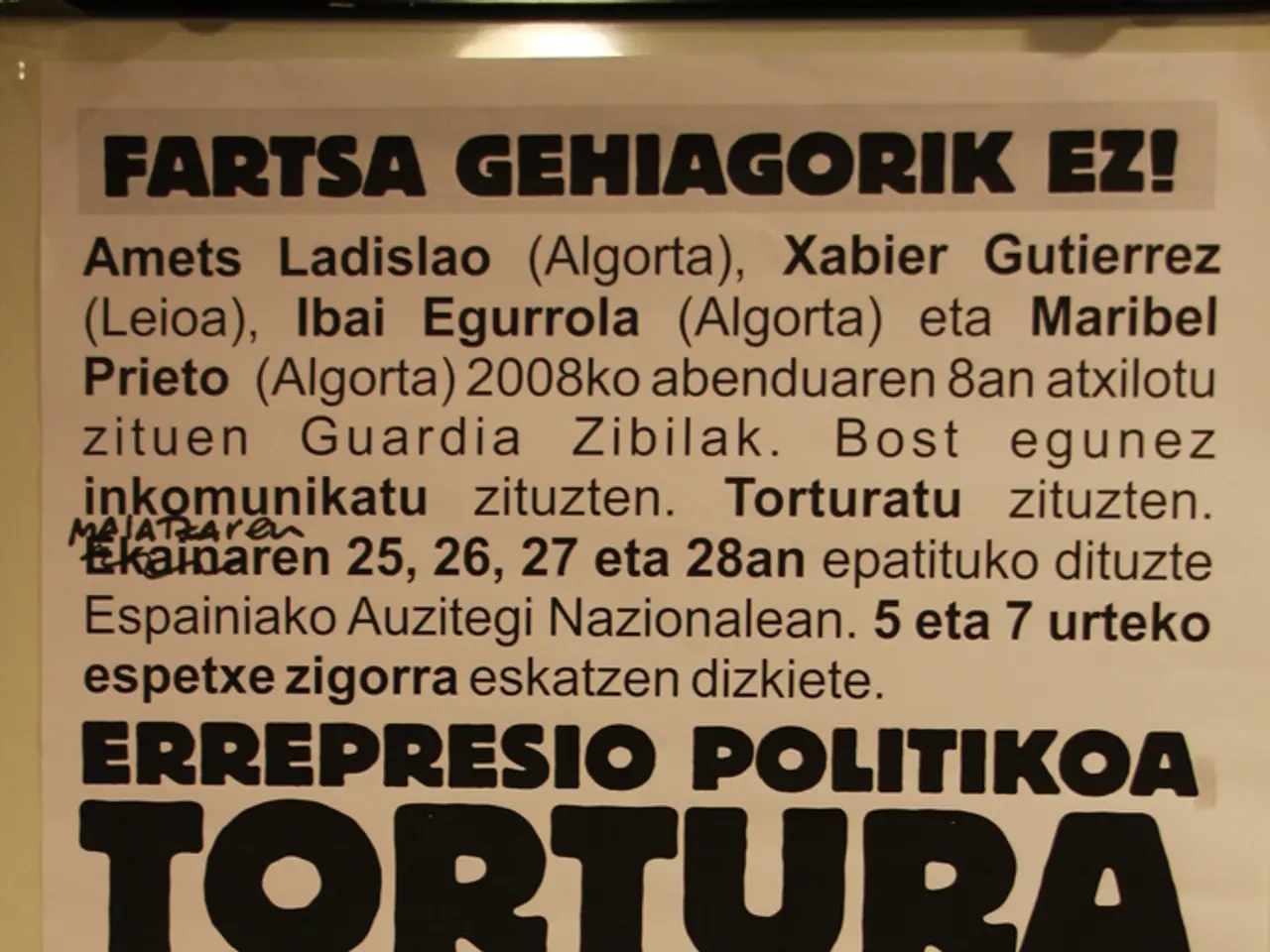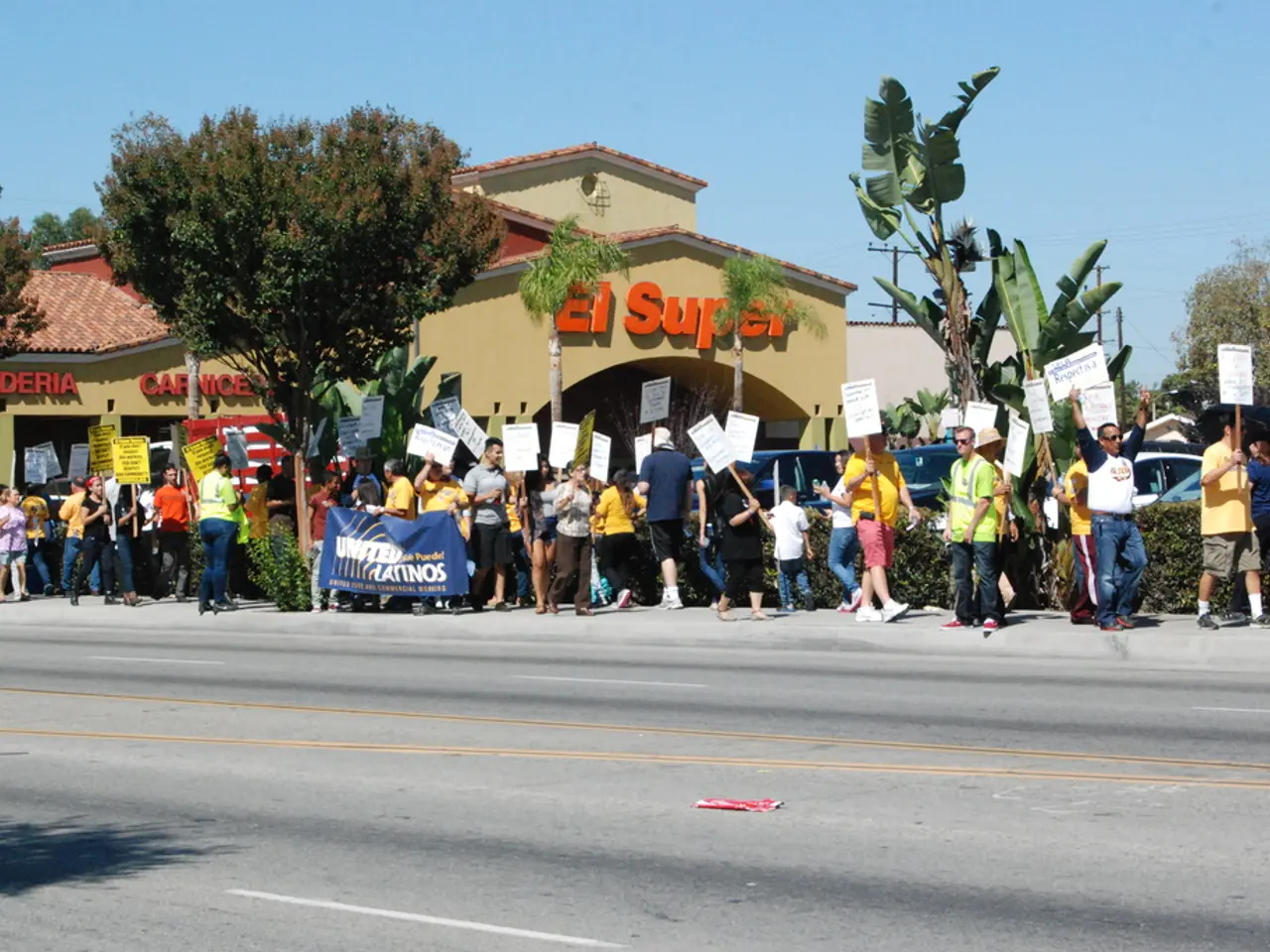A name change in a Malaga Province village: The title on the map is shifting.
In a significant step towards confronting its past, Spain is actively removing symbols and names associated with the Francoist dictatorship from public spaces. This initiative is part of the country's broader effort to promote historical memory and uphold democratic values, as mandated by the Democratic Memory Law (Ley de Memoria Democrática).
The Democratic Memory Law, effective since October 2022, obliges municipalities to revise street names, squares, and other public designations to eliminate any references glorifying the dictatorship. One such village that is undergoing a name change is Villa del Guadalhorce, located in Andalucía.
The proposal for the renaming was made by the Democratic Memory Department led by councillor Ana Belén Ordóñez. The Alhaurín el Grande town council approved the decision on August 1, 20XX. The administrative process for final validation by relevant authorities for the renaming of Villa del Guadalhorce is now underway.
Once legal formalities are completed, the village's name will be updated in official records, and signage will reflect the new name. This change aligns with national regulations requiring public administrations to eliminate symbols and names glorifying the Franco regime.
Similar actions have been taken across Spain, with villages like Villafranco del Guadiana (Badajoz) and Llanos del Caudillo (Ciudad Real) also undergoing name changes to stay in line with democratic values enshrined in the Spanish Constitution.
The renaming of public spaces is not just a symbolic gesture. It represents a legal rupture with the dictatorship's heritage in Spain’s contemporary democracy. The Democratic Memory Law is significant as a mechanism of historical justice, enabling descendants of victims and exiles to reclaim rights while actively removing Francoist legacies from public life.
This law is part of Spain’s broader effort to confront its past and promote historical memory, ensuring democratic values are upheld by repudiating the dictatorship. The renaming of public places and removal of Francoist symbols is a tangible demonstration of this commitment.
In summary, the renaming of Villa del Guadalhorce is a testament to Spain's ongoing efforts to adapt public spaces to constitutional and democratic principles, as required in law. This change, along with similar actions across the country, signifies a significant step towards a more inclusive and democratic Spain.
The Democratic Memory Law, a crucial legislation passed in October 2022, stipulates that municipalities should revise public designations to eradicate any references glorifying the Francoist dictatorship, reflecting the country's policy-and-legislation on confronting its past (policy-and-legislation). This initiative, witnessed in the proposed name change of Villa del Guadalhorce, is a manifestation of Spain's politics on historical memory and upholding democratic values (politics). Furthermore, the renaming of public places, such as Villa del Guadalhorce, and the removal of Francoist symbols from public spaces are part of general-news that highlight Spain's commitment to a more inclusive and democratic society.






